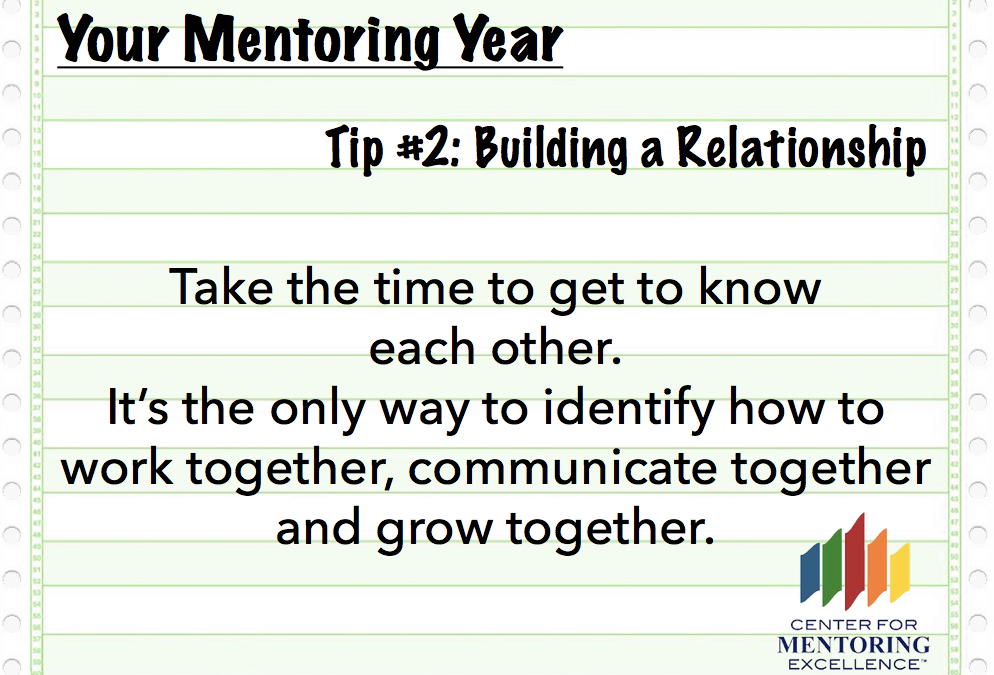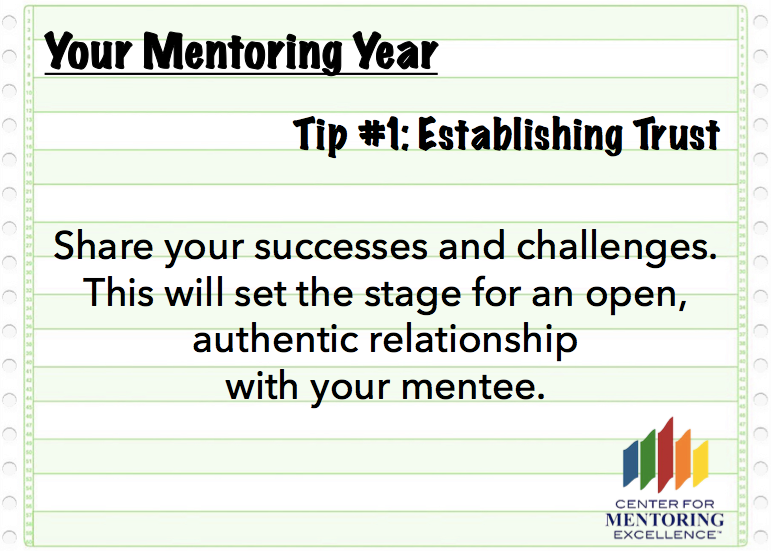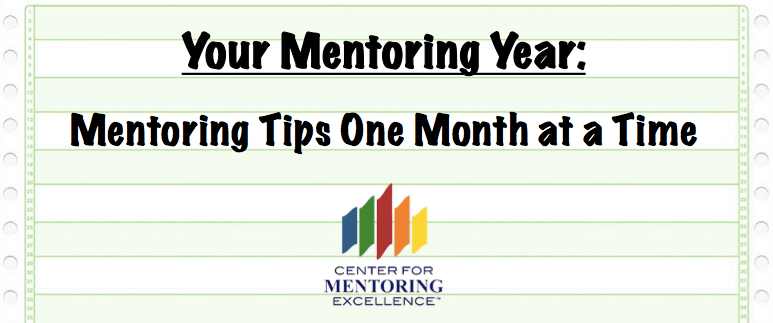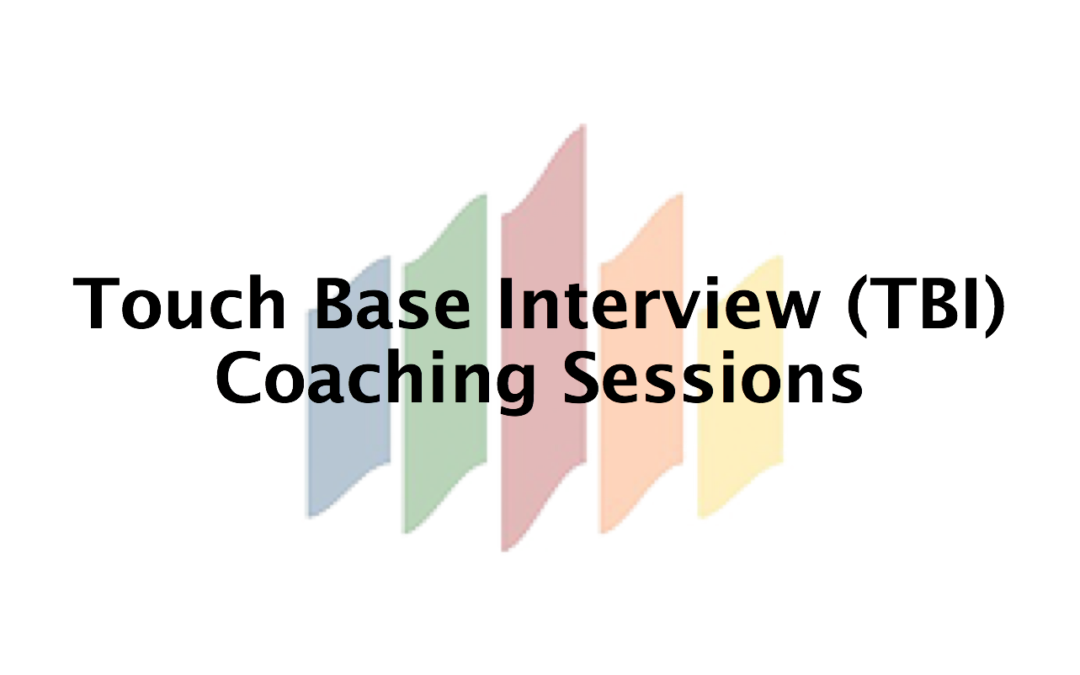
by Center for Mentoring Excellence | May 8, 2017 | Facilitating Learning, Growth and Development, Making Mentoring Work For You, Mentoring Communication, Mentoring Questions, Mentoring Relationships, Supporting Mentors and Mentees
Taking the time to work on a mentoring relationship is not always easy. But these relationships are truly the heart of any successful mentoring endeavor. In fact, it’s often a prerequisite for success. Mentors and mentees who discuss their relationship expectations end up experiencing exponentially more success than those who don’t.
One mentee, an associate at a large law firm, lamented that the relationship wasn’t working because her mentor focused only on the path to partnership. The mentee told us, “That’s not appealing to me. It’s like preparing for a pie-eating contest where the prize is more pie.” That mentoring pair was ultimately unsuccessful because they didn’t take the time to learn how each other tick.
Here are some questions to ask your mentoring partner that will set a strong foundation for the relationship:
- What motivates you in your career?
- How do you learn best? Do you need time to process alone, or do you process best by “thinking aloud”?
- What are your pet peeves?
- Do you like to read? Are you open to article and/or book suggestions? Would that be welcome or feel burdensome?
- Have you had a mentor/mentee in the past? What worked in that relationship? What did not work?
Missed Tip #1? Find it here. And make sure to come back next month for Tip #3!

by Center for Mentoring Excellence | Apr 5, 2017 | Facilitating Learning, Growth and Development, Making Mentoring Work For You, Mentoring Communication, Mentoring Questions, Mentoring Relationships, Supporting Mentors and Mentees
Trust is everything when starting out in a new mentoring relationship — and even when you’re nurturing an existing one! While it’s tempting to dive in and drill down quickly to talk about needs and goals at the first meeting, try to avoid this. Instead, focus first on establishing an open and authentic relationship. It takes time and attention, but in the long run, it’s well worth it. You will have established a deeper, more meaningful, trusting relationship. Here are some things to keep in mind:
- Get to know your mentee, and let your mentee get to know you. To jump start the process, come prepared with a list of questions. What is it you want to know about your mentee as a person? What do you want to know about your mentee’s work context?
- Your mentee needs to relate to you, too. Mentees are more forthcoming when a mentor shares their personal success stories, as well as their struggles. If you’re open and authentic, it invites your mentee to be, too.
Check back soon for “Your Mentoring Year” Tip #2!

by Center for Mentoring Excellence | Apr 3, 2017 | Goal Setting Conversation, Growth and Development, Making Mentoring Work For You, Mentoring Relationships, Supporting Mentors and Mentees
How is your year going so far?
With summer right around the corner, we thought it was the perfect time to inject some energy and excitement into your mentoring relationships.
So how about some helpful tips and tools? Just like any other healthy habit, building and sustaining thriving mentoring relationships is a non-stop process, requiring constant care, learning and adjusting.
With this in mind, we’re starting a new program for you — Your Mentoring Year: Mentoring Tips One Month at a Time. Each month we will focus on a mentoring practice, approach or technique that contributes to your mentoring excellence. As part of each month’s tip we’ll discuss why it’s important and how you can specifically apply these practices immediately to enhance your mentoring relationships. It’s both informative and actionable!
After a full year, you can refer back to these monthly tips to assess your effectiveness.
Sound good? Keep an eye out for our first month’s tip early this week!

by Center for Mentoring Excellence | Mar 21, 2017 | Facilitating Learning, Growth and Development, Making Mentoring Work For You, Mentoring Training, Supporting Mentors and Mentees
The Center for Mentoring Excellence has conducted more than 200 interviews with mentors and mentees in formal mentoring programs around the globe using a process we created called Touch Base Interview (TBI) Coaching Sessions™. These coaching sessions offer mentors and mentees confidential, just-in-time coaching and support at critical milestones in the mentoring cycle. This works to ensure mentoring success by helping mentoring partners stay on track, grow and develop. (more…)

by Center for Mentoring Excellence | Dec 20, 2016 | Facilitating Learning, Growth and Development, Making Mentoring Work For You, Mentoring Relationships, Supporting Mentors and Mentees
Being a mentor (and a mentee) often means working with and building relationships with members of other generations — both older and younger. Here’s your go-to mentoring guide for cross-generational mentoring relationships: (more…)

by Center for Mentoring Excellence | Mar 21, 2016 | Goal Setting Conversation, Growth and Development, Mentoring Relationships, Supporting Mentors and Mentees
The Importance of the First 90 Days
It’s a fact: The first 90 days sets the tone for your mentoring relationships! According to Lory Fischler, co-author of Starting Strong (Jossey-Bass 2014), “Many mentoring relationships don’t actually survive the three-month milestone. That’s because they start with good intention and energy but get derailed by lack of time, structure, purpose, progress and accountability.”
We’ve identified six essential conversations that we believe ought to take place during the first 90 days of a mentoring relationship to ensure that it starts strong and stays focused. These conversations set the tone for mentoring success.
Conversation #1: Mentoring partners often jump into mentoring too soon and fail to take the necessary time to get to know one another. When mentoring partners spend time to build their relationship by engaging in real conversation, they are better able to establish the high level of trust that is critical for learning and growth.
Conversation #2: Once trust has been established, it is time to decide how to structure your mentoring relationship and your meetings so that you stay on track. By proactively talking about ground rules, confidentiality, hot buttons and boundaries, mentoring partners avoid problems along the way.
Conversation #3: A robust series of conversations about the mentee’s goals is often more important than the process of formally defining them. Through conversation an effective mentor facilitates mentee understanding about his or her needs and the areas of potential growth necessary to meet those goals.
Conversation #4: Once goals have been identified, it’s time to talk about how to achieve them. This is accomplished by identifying learning opportunities to support and challenge the mentee — to encourage a mentee to stretch and stand outside his or her comfort zone. This where true growth and development occur.
Conversation #5: Along the way, there may be stumbling blocks that get in the way of the relationship. Holding a conversation to address them as soon as they occur keeps the focus on progress and forward movement.
Conversation #6: The three-month milestone is ideal for holding a two-way feedback check-in conversation. By addressing meaty questions (i.e., “What has been the biggest learning to date? What are we doing that is providing value? What is working and what could be better?”) both mentor and mentee receive feedback that enables them to elevate their individual skills.
You won’t want to miss our day-long conference, Making Mentoring Matter: Strategies and Tools for Individual Development and Organizational Effectiveness on Wednesday. May 4, 2016 in Bellevue, WA., where Lory Fischler will be presenting a workshop entitled “Starting Strong: The First 90 Days.”








